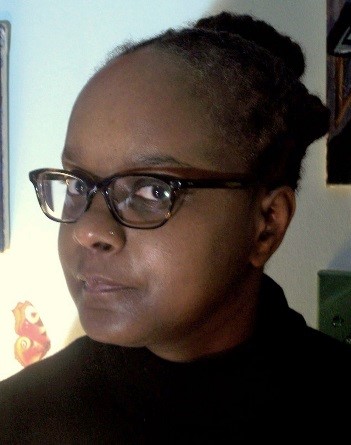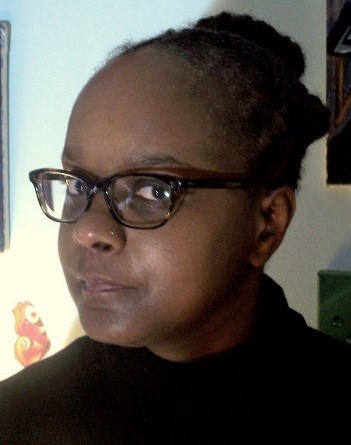
1964: the year his marriage ended. The year his record stopped spinning, the needle in his groove lifted haltingly, and with a snap returned his tone arm to its cradle.
He had never wanted Marilyn. Not her prim-girl curls hot-combed into place on her head. Not her full-moon face so earnest that the sight of it irritated him. He hadn’t wanted to hear, I’m eight weeks gone! We have to marry, the corners of her mouth drooping. He hadn’t wanted the ceremony in Hackney Town Hall, his signature and hers in the register (but he had wanted the tonic mohair suit that made him look like a prince). He hadn’t wanted to live in rented rooms above a shop, with Marilyn asking, But where will the baby sleep? He hadn’t wanted any of this. He had come to England to find work, to do something with his life, to send photographs of his handsome Jamaican self back home to his Grandma, make her proud. Dear Granny, I hope that when these few lines reach you they will find you well…
You’d think, having worked for 40 hours a week standing on the platform of a Routemaster trundling from Tottenham to Victoria and back again, and back again, with him turning the handle of the ticket machine to give out tickets, and the English dropping coins into his hand because they don’t want to touch his skin, that he would be able to spend a little bit of the money he’d earned on himself. Indulge in a little flutter on the horses after work. Buy a new shirt, some smart shoes from Reuben’s near Bruce Grove. Take a trip to R&B record shop in Stamford Hill to find the latest jazz and bluebeat cuts. You’d think that would fine and fair. It wasn’t as if Marilyn was a housewife earning no money, though she was only a student nurse. But Marilyn said it wasn’t fine, or fair. She asked, Have you paid the rent? The water rates? How much in the bank now, in the savings account? You home late, you been in the betting shop? Have you?
Team Spirit thundered home and made him a winner. So this is how it feels to be a rich man, if only for a day. He celebrated by buying drinks in the local for all his workmates, and then left them to catch R&B before it closed for the day. He wanted to get his hands on The Cat, and paying for it with some of his winnings would make buying it all the sweeter.
On the way home he thought about Marilyn. He thought about her puddin’ rice, her corned beef and cabbage that always lacked seasoning. How she liked to wear calf-length skirts, thick tan tights and flat brown brogues. How she preferred to read novels rather than watch television or go dancing. How she’d had to stop going to church once her bump started to show and the congregation began to whisper, How she get so big so soon when they only been married a few months? How she missed her father, and made it clear that he was no match for that upstanding Trinidadian pastor. How she never, ever spent money on anything that wasn’t essential because she was saving, saving for a deposit on a house. How she would not, under any circumstances, agree to live in a flat provided by the London County Council. Picturing that moon-face, he wondered whether he would ever be able to like her, let alone love her and live with her for the rest of his life.
The Cat by The Incredible Jimmy Smith was a US import LP that cost the equivalent of one-fifth of his weekly wage. The sleeve was a conspicuous red, with a photograph of a black cat slinking into the foreground. When he got home he slipped it, still in its paper bag, into the record rack inside the radiogram.
Marilyn was revising for her nursing exams. He knew it was a delicate time for her, as the baby was due very soon. Leaving to give birth before receiving her certificate would spell the end of her career. He thought it best to keep his latest acquisition a secret for now, to leave it for a few weeks before playing The Cat when she was at home. He was looking forward to Smith’s smooth Hammond organ melodies keeping his thoughts company as the bus drove from one end of route 73 to the other.
Unfortunately, he had forgotten what a scrupulous cleaner Marilyn was. She had a forensic eye for dust and dirt. Her mother’s helper from an early age, Marilyn knew how to keep a home clinically clean. He used to watch from the comfort of his armchair as she dusted the corners of the ceiling, dusted the edges of skirting boards, dusted windowsills, their coffee table, their black and white television. She polished the brown teak radiogram, an extravagant purchase of his that she had actually approved of because it was an elegant piece of furniture in its own right. There was no surface in their home on which dust could settle for long. He really should have known that Marilyn would find The Cat, still in its tell-tale paper bag, sooner rather than later.
You! You spendthrift! You worthless so-and-so. What make you think your music and the horses are more important than the baby, than the house we need? You force yourself on me and now look at the predicament I’m in.
The tragedy was that Marilyn was standing right at the top of the stairs as she said these things. And the tragedy was that the features of her moon-face contorted as she spoke, her skin turning plum-tomato red, and it repulsed him. And the tragedy was that his blood began to simmer and it made his heart pump with rage. The tragedy was that the only woman he had ever really loved was his Grandma, not this woman, or any other. It was tragic that when he pushed Marilyn down the stairs he had only meant to silence her. He hadn’t meant for Marilyn to end up in hospital and miss her nursing exams. He hadn’t meant to bring about a funeral awash with grief and sorrow over a miniature white coffin.
And when he came home from work one Friday night to find a note on the kitchenette table saying that she had forged his signature, withdrawn all their savings and spent the money on a flight home to Trinidad, he was sorry for everything except Marilyn leaving him.

Sonia Hope is a North-East Londoner of Jamaican and Trinidadian heritage. She is a Jerwood/Arvon mentee (fiction) 2019/20, mentored by Nicholas Royle. Her stories have appeared in The Nottingham Review, Flash Flood, Flight Journal and Ellipsis Zine. She is the Librarian at the Heinz Archive & Library, National Portrait Gallery.Twitter: @soniamhope




4thestatebooks